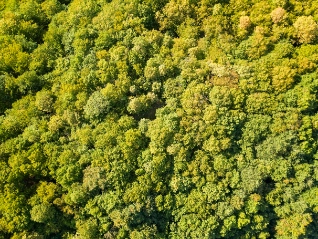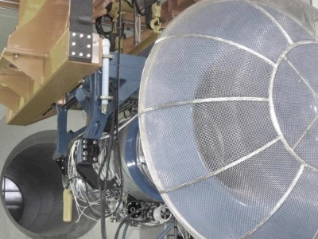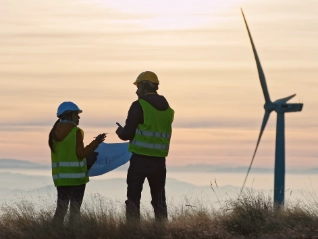Ben Green, President and Owner at Metalco Incorporated in Chicago, Illinois, explains how Atradius Trade Credit Insurance has helped him secure new business confidently.

Recommended reading

Latest news and insights

Reports and whitepapers from our industry experts

Helpful guides at your fingertips

Examples of high quality credit management processes and practices in a variety of different sectors and markets throughout the world

Success stories from our diverse range of clients
Understanding why credit insurance provides broader coverage, strategic risk management and financial stability compared...


Industry growth slows as global trade applies the brakes

How credit insurers evaluate risk and determine appropriate credit limits

This year, Atradius celebrates a remarkable milestone: a century of operations in the Netherlands.

Can South Africa's GNU party overcome tensions and structural challenges to unlock GDP growth?

Navigating global payment risk in a year of rising insolvencies and shifting customer behaviour

Every customer is a...
This year, Atradius celebrates a remarkable milestone: a century of operations in the Netherlands.


Tariffs and tight margins are...

Thanks to this partnership, our clients in Spain can become sellers on Alibaba.com’s B2B marketplace without paying an entry fee

Europe has committed to a new era in...

Trade tensions, AI investment and geopolitical shifts dominate the global trade agenda. The key takeaway: business must...

Navigating global payment risk in a year of rising insolvencies and shifting customer behaviour

The US President’s latest tariff threat exposes the weaponised interdependence that has become a flashpoint for...
Viewing 7 out of 64
Industry growth slows as global trade applies the brakes


Can South Africa's GNU party overcome tensions and structural challenges to unlock GDP growth?

US tariffs, geopolitics and lower demand trigger a contraction of global automotive production in 2026

Tari...

Pharmaceuticals businesses throughout the world are reviewing their operational and...

Chemicals production growth projected to slow in 2025/2026 due to US tariffs

Trade tensions trigger higher insolvencies
Viewing 7 out of 205
Filter by
Understanding why credit insurance provides broader coverage, strategic risk management and financial stability compared...


How credit insurers evaluate risk and determine appropriate credit limits

Explore how surety bonds and bank guarantees work, their similarities and differences, and what they mean for...

Explore the trade-offs between credit insurance and self-insurance to protect cash flow and...

Globalisation makes market expansion inevitable, but entering new territories remains a complex and...

Credit...

Viewing 7 out of 32
Every customer is a...





Vestas uses Atradius Surety solution to support their trade relationships.

Atradius Surety supports OX2’s commercial aims and helps facilitate their rapid growth in the wind power industry.

Atradius Surety works closely with PORR AG to provide them with surety bonds tailored to their needs, and quick...
Viewing 7 out of 18



Case Study
EnCom Polymers: credit management for chemicals sector
With the backing of Atradius’s resources, EnCom Polymers has been able to expand business with existing customers and go after new business they previously would have shied away from.
After adopting Atradius trade credit insurance, MBS found that their credit control processes improved so much that staff had more time to devote to clients.


Janson Bridging (International) uses export credit insurance from Atradius Dutch State Business (DSB) to offer favourable credit terms to customers...

By providing open dialogue, insight and valuable credit information we helped Brook Green Supply improve their internal credit...

El Ganso credits our support in helping the fashion brand grow from a domestic-focused Spanish startup to a successful international business.

Calidad Pascual partners with international credit insurance firm Crédito y Caución Atradius to gain additional knowledge of international markets.

Late payers prompted content marketing agency KMOdynamoo to take out an Atradius credit insurance policy and has resulted in better debtor management.

FERM (International) offers competitive payment terms and limits their credit risk to developing countries by using Atradius Dutch State Business (DSB) and...
Viewing 7 out of 9


































